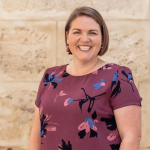I reckon the Aussie FIRE Discussion group gets at least one ‘Which exchange traded fund (ETF) shall I choose?’ post a week.
I suspect three factors drive this regular querying:
- Most people buying ETFs are in for the long haul. They’re treating the purchase like a marriage, thinking in decades. They don’t want to find out they’ve picked a dud a few years down the track.
- There’s been a proliferation of options. Once upon a time, if you wanted an ETF there was Vanguard or …Vanguard. In March 2020, there were 200 ETFs listed on the ASX offered by several different providers. That number continues to rise.
- Many finance bloggers are engineers …including me. We’re details people, so we pull apart every last fact and figure. It can terrify those less minutiae inclined.
If you’re considering asking a Facebook group which ETF to buy, this article is for you.
My approach with choice overwhelm is to focus on eliminating options. This narrows down the full gamut of available solutions. It saves me time and energy as I don’t wade through data I don’t need to make my decision.
Here are five ways I eliminate ETFs if I find myself getting bogged down:
A is for Alignment
What kind of investments do you want? Is it an all-in-one portfolio approach? Or are you after a specific sector or region – an ASX 200 tracker for example? Perhaps you’re voting for the future you want by choosing only ethical funds.
Work out what your priorities are so you can eliminate options that don’t align. You’re more likely to keep the ETF you choose for a long time this way, and it saves you getting stuck on unviable options.
A look on the ETF provider’s website will tell you what companies they hold and their investment philosophy.
B is for Balance
What other investments do you own? If you’ve already got an ASX 200-tracking ETF, you probably don’t need another one. If you own lots of Australian shares, you might consider an ETF that holds international shares instead.
Working out what you’ve got already includes looking at your superannuation (super). If you’re young, it might not feel like your money yet, but one day it will be in your hands. If you’ve chosen lots of overlapping investments in and outside super, you’re concentrating your risk. That’s rarely helpful.
C is for Cost
Two advantages ETFs have over picking individual shares are:
- diversifying your risk quickly and simply, and
- costing less than managing the portfolio you’d have to construct to get that same risk profile – less in transaction costs, and less in ongoing management.
People tend to focus on the upfront transaction cost of buying the ETF – the brokerage. They don’t spend enough time understanding the management expense ratio (MER) of the ETF provider. The latter will likely cost you a lot more over the life of holding that share.
Growth and dividends cannot be guaranteed. Fees can. Just like you should be seeking low fees on your super, you should be checking your preferred ETF has acceptably low management fees. If not, they’re undermining one of the reasons you’re buying them in the first place.
Pick an MER threshold and knock out ETFs above that.
D is for Deadline
A month spent deciding which ETF to pick is fine.
A year spent agonising over the decision because you’re overwhelmed means you’ve missed out on growth and dividends. It’s costing you money.
Don’t let analysis paralysis rob Future You.
I subscribe to Parkinson’s Law, which translates to: the work will take the time you let it. Set yourself a deadline for picking your preferred ETF, then get buying.
E is for Exit
Although treating your purchase like a marriage is good for making sustainable decisions, remember that switching ETFs is far simpler than a divorce, and usually less costly.
You just sell it, pay whatever capital gains tax is applicable, then buy a different one. It can be done in days, not the months and years that divorce can consume.
The bottom line
It’s OK if you don’t find the perfect ETF in this round of decision-making. The experience will make you wiser (if you let it) and you can choose a different ETF next time.
Go for it!

Lacey Filipich
Lacey Filipich helps people become financially independent and reclaim their lives. Thousands around the world have used her Money School courses to liberate themselves from debt, start saving and investing, and raise financially capable kids. Money School is also the title of her first non-fiction book, out now with Penguin Life. Lacey graduated as valedictorian from the University of Queensland with an Honours degree in Chemical Engineering (if you want to find out how a chemical engineer ends up teaching people about money, check out her TEDx talk.) Lacey is the winner of a 2019 Business News '40 under 40’ Award, and is based in Perth with her husband, daughter, and son.
